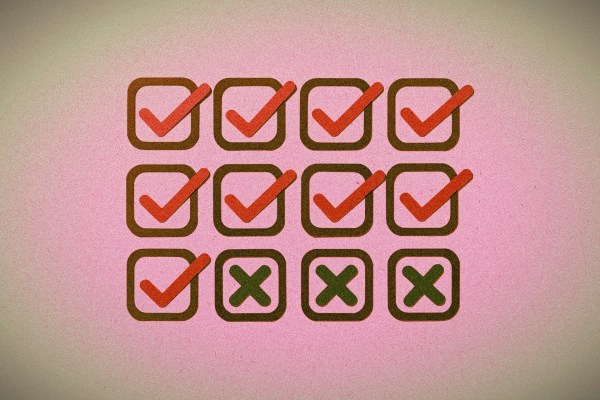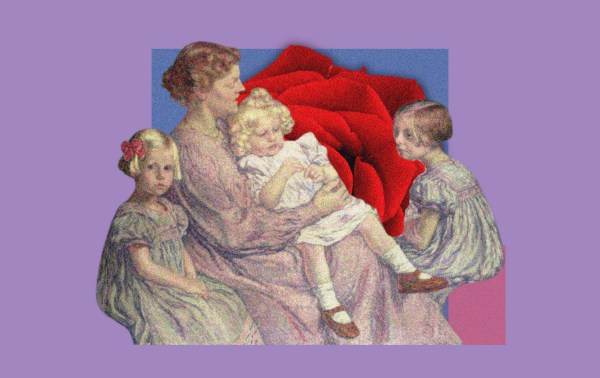Turn any article into a podcast. Upgrade now to start listening.
Premium Members can share articles with friends & family to bypass the paywall.
You can tell much about a culture from the virtues it holds most dear. The defining virtue of the contemporary West is compassion, and that is a problem.
Of course, I’m not arguing that being moved to pity by someone’s suffering is inherently wrong. What I am arguing is that our modern understanding of compassion, untethered from its original moral foundation, has stunted our ability to properly practice the virtue of mercy.
“Mercy” has had varying connotations in different religious traditions over the centuries, but in Western countries it is a concept that has been inevitably shaped by Christianity. St. Thomas Aquinas defined it, in the 13th century, as a virtue not opposed to, but beyond justice. For Aquinas, showing mercy means being moved by compassion to pity someone’s suffering, and acting to relieve that suffering in a way that is regulated by reason. I believe it is the latter part of this definition that we have lost. We no longer know how to respond to pain in a reasonable way—that is, in a way that is compatible with the dignity of human life.
This is most obvious when it comes to bioethical issues. All controversial life issues—from abortion to assisted suicide—revolve around the proper meaning and application of compassion, mercy, and justice. The abortion rights advocate tends to argue that the compassionate thing is to allow an expectant mother to end the life of her unborn child if pregnancy and parenthood will cause too much physical or emotional pain to her. Supporters of assisted suicide are similarly trying to end the suffering of the terminally ill—or those whose quality of life is severely impacted by bodily or mental illness—by aiding them in putting an end to their lives. It’s no coincidence that “mercy killing” is a euphemism for euthanasia or medical aid in dying (MAiD). In all of these cases, killing is justified by the desire to alleviate pain and distress.
The question is not whether we should respond to someone’s distress—we obviously should—but rather what we consider acceptable means of doing so. Within the Christian tradition, virtues such as charity, justice, and mercy cannot exist separately from each other, but must all be balanced against one another. Yet secular society, though it has not rejected the Christian tradition of the virtues wholesale, has begun to pick and choose which virtues remain “virtuous.” So, we find ourselves in a cultural moment when we highly value the eradication of pain—no matter the cost. As theologian Oliver O’Donovan put it in The Desire of the Nations (1996), “compassion for suffering has become an all-important virtue … [it] is the determination to oppose suffering; it functions at arm’s length, basing itself on the rejection of suffering rather than the acceptance of it.” The risk is that we then place undue weight on the belief that immediate action must be taken to eliminate pain, even if it comes at the expense of destroying a human being in the process. Other virtues—such as the humility to know that we should not make life-and-death decisions, or the patience required to suffer alongside those who are in pain—are forgotten.
For example, in the United Kingdom abortion was partially decriminalized in June, the same month that a bill legalizing assisted dying passed its third reading in the House of Commons (the bill has now also passed its second reading in the House of Lords, and a committee has been set up to investigate the issue further before the third reading in November). One of the major charities advocating for assisted dying to become law, Dignity in Dying, heralds as its core principle that “No one should be forced to suffer as they die.” Destroying the suffering, then, is justified on the grounds that to suffer is a fate worse than death.
Putting an end to pain may sound inherently good, but there are serious risks if we consider it the only good to work towards. The most obvious risk is that access to assisted dying in the name of compassion can mask a dangerous overemphasis on self-sufficiency. Compassion, in its secularized, “heretical” form, has, in this context, taken on the meaning of ensuring that the human body can function autonomously. We see independence as the default, and conversely dependence becomes a malfunctioning, a state of illness that must be overcome to restore the healthy, self-sufficient body and mind.
We know that feeling like a burden to family and friends is one of the major factors that prompt the elderly and terminally ill to seek assisted dying, especially in Canada, where MAiD was legalized in 2016. Similarly, as Dispatch contributor Leah Libresco Sargeant puts it in her new book The Dignity of Dependence, “The pressure to pretend to be autonomous is a heavy burden” for women, especially if they are pregnant. The decision to abort a child is closely linked to the fear of losing bodily autonomy and in turn becoming a burden on others. “The baby’s divergence from the autonomous ideal,” argues Libresco Sargeant, “points back at its mother, exposing her own deeply human ways of being marked by dependence.”
But we don’t have to see dependence as a flaw. An alternative is available. Recovering a proper understanding of the virtue of mercy can help us to respond compassionately to suffering in a way that accommodates, rather than demonizes, dependence and vulnerability. In Dependent Rational Animals (1999), the late philosopher Alasdair MacIntyre argued that we should treat “the facts of vulnerability and affliction and the related facts of dependence” not as a deviation from, but as “central to,” the human condition. It’s true that advancements in modern medicine have enabled us to extend the period of our lives in which we can expect to be reasonably healthy, but MacIntyre is right: Dependence, not autonomy, is the natural human condition. Humans are born needy—much more so than most other animals—and require extended, devoted care from parents. Even a person who suffers no debilitating injuries or illnesses throughout their adult life will eventually revert to some degree of dependence in old age. Our independent season of life, when we can expect to be busy building careers, traveling, or looking after dependents of our own if we choose to become parents, is bracketed on both sides by extreme vulnerability.
If dependence is the norm and autonomy the exception, then it follows that practicing mercy involves acknowledging and dignifying said dependence, rather than trying to erase it—even if via supposedly “compassionate” means. Nonetheless, in situations where a person’s life is scarred by incredibly debilitating pain, aiding death may seem like the more virtuous path. A mother may be willing to take on the care of a child who, she is told by doctors, will likely be born disabled if she chooses to continue with the pregnancy. Likewise, a disabled elderly person may feel secure that his or her grown children do not consider their duties of care to be a burden. But what happens if that mother is told the child has a fatal condition that would result in a certain, painful death in early infancy? Or if that elderly person’s suffering is so intense that no painkillers exist strong enough to alleviate it? Does it then become a duty of care to kill instead of extending the life of the sufferer?
In such cases, we have to square the virtue of compassion with that of justice. If, once again, we go by Aquinas’ definition, justice is the habit of giving to each person his or her due. Mercy, not a contradiction but a fulfillment of justice, is the habit of giving more than what is due to a person—for example, by pardoning a criminal offense. So, the question in cases of extreme suffering is whether it’s more just to end a person’s pain or to preserve that person’s life.
The immediate relief of suffering may seem like a just cause to fight for, but I would caution against any comforting illusion that death itself can be painless or peaceful. Those who have witnessed executions, for example, have testified that the carrying out of the death penalty is often gruesome and prolonged. Even when a person is sedated, death can be very protracted, and a patient may even re-emerge from their coma before eventually passing. Simply because a person can no longer show signs of pain, it doesn’t mean they are not experiencing it. Yet while one could argue that the suffering of an execution is the just punishment for a person’s crimes, the terminally or chronically ill are being relieved of their suffering by means that cause further harm.
This reality, however, is hidden from view. I am as likely to witness an execution as I am to ever witness an abortion or a death by assisted suicide. So are most members of the general public. On the other hand, many medical professionals who deal with life and death on a daily basis are profoundly opposed to measures that harm life in the name of compassion. I recently had the opportunity to speak to a few such doctors. Basilio Hernandez-Diaz, a general practitioner (the U.K. equivalent of a family practitioner) and independent researcher, worked in a hospice facility during his training. He is acutely sensitive to the suffering of those nearing the end of their lives, and yet he believes that “it’s not mercy, it’s cruelty” to aid suicide. He tells me that assisted dying may seem appealing to some doctors because, by ending the patient’s life, a doctor’s own suffering at the sight of the patient’s pain will be relieved. He is firm in his conviction that palliative care is the merciful option and that medical professionals have a duty to aid patients in their suffering right to the moment of natural death.
Calum Miller is a medical doctor and a research fellow at Blackfriars Hall in Oxford. He believes unchecked liberalism and individualism are ideologies that “have stunted people’s moral perspective.” He similarly remarked that the medical profession has become focused on immediately ending suffering, no matter the cost. “Anything that goes beyond a simple pain or pleasure equation” is seen with suspicion in health care, Miller told me. Treatment relies on “purely hedonic pain or pleasure considerations,” rather than on the greater goal of safeguarding the overall health of the patient. Simply removing pain, Miller pointed out, does not necessarily mean preserving the wholeness of the human body. Death, not suffering, is the ultimate opposite of health.
Both Hernandez-Diaz and Miller—as well as other doctors who kindly spoke to me but wished to remain anonymous—specified that, while the concept of mercy is closely tied to the history of Christianity in the West, certain ethical principles in the medical profession should apply regardless of religious beliefs. They all cited the Hippocratic oath, formulated before modern medicine emerged to keep chronic pain in check, as an example of a pagan text that, in their view, prohibits abortion and euthanasia. The Hippocratic oath is, in fact, part of a longstanding tradition of medicine based on the axiom that a doctor must not harm a patient. According to this tradition, while everything should be done to minimize suffering,a doctor cannot kill a patient—that would be the greatest harm of all.
We can choose to leave this tradition behind. Yet we should be mindful of what we are losing in the process. Even in those cases where death appears the lesser evil, it is still an act of violence on the very concept of human dignity. This can significantly threaten the value of life itself. If a country legalizes practices like assisted dying, it effectively sends the message to its citizens that to exist is not inherently, but conditionally good. And if life is only conditionally good, who’s to say where the line should be drawn? What if a person does not experience chronic pain, but is, for example, seriously depressed? Should their lives be put to an end? In Canada, this is set to become law; in the Netherlands, it’s already happening.
Finally, we should consider the effect which procedures like abortion and assisted dying have on those who perform them. Even when abortifacient or medical aid in dying drugs are self-administered, they must be prescribed by a medical professional. We are deluding ourselves if we assume that such medical professionals are unaffected by the role which they play. The unborn child or the end-of-life patient may not feel pain after death has occurred, but the doctor who aided their death may well live to regret it. What is the killing of the vulnerable and afflicted doing to the souls of those who aid the ending of a life?
We all depend on each other. A version of mercy which allows one person to bring about another’s annihilation is a distortion of that virtue. It erodes the social bonds of dependence and breaks trust between doctors and patients, citizens and governments. Mercy should be oriented towards preserving, not destroying life. The merciful response is not to kill the sufferer, but to be truly compassionate: to patiently suffer with the sufferer, and to do everything we can to assure them of their dignity until the moment of their natural death.






Please note that we at The Dispatch hold ourselves, our work, and our commenters to a higher standard than other places on the internet. We welcome comments that foster genuine debate or discussion—including comments critical of us or our work—but responses that include ad hominem attacks on fellow Dispatch members or are intended to stoke fear and anger may be moderated.
With your membership, you only have the ability to comment on The Morning Dispatch articles. Consider upgrading to join the conversation everywhere.